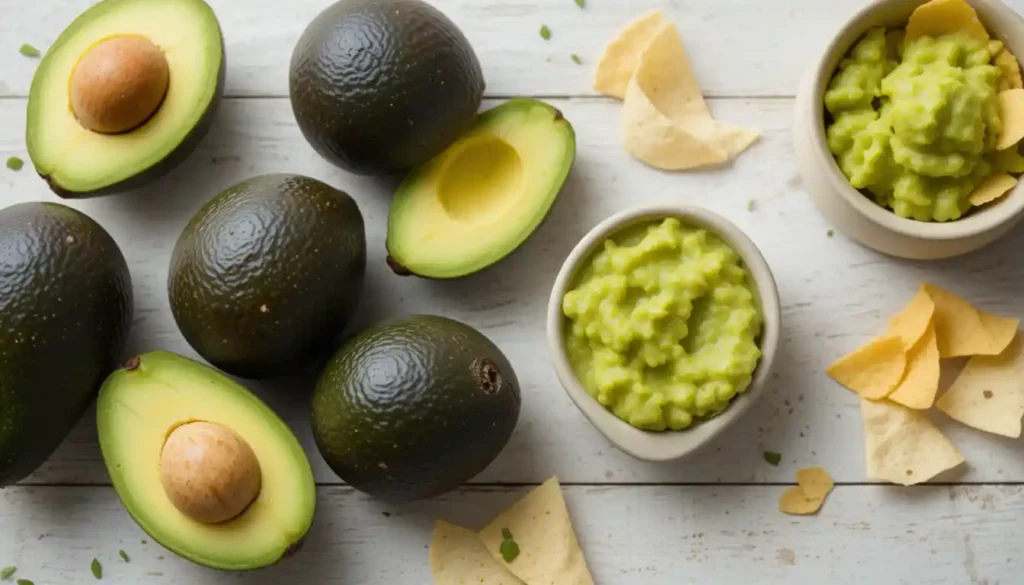Avocado nutrition facts are something many people still don’t fully know, even though this fruit become super popular in recent years. Their creamy texture and rich flavor makes them a fav in salads, sandwiches, and even smoothies. But, the real magic hides inside its nutriotional profile. Avocados are packed with vitamins, minerals, and good fats that are really helpful for overall health. If you’re curious about calories, healthy fat, or why doctors call it a superfood, then keep reading.
Avocado Nutrition Facts
When it comes to talking about avocado nutrition facts, the numbers are actualy pretty amazing. One medium size avocado usually had around 240 calories, 21 grams of healthy fat, and 10 grams of fiber. Unlike many other fruits, avocado is low in sugar and high in good monounsaturated fats that support heart health.
What is Avocado Nutrition Facts?
Avocado nutrition facts basically tell you the values of vitamins, minerals, and calories in this fruit. Unlike bananas or apples, avocados are not mainly carb-based. They are more fat-rich fruit, making them unique. They also had potassium, vitamin K, vitamin E, folate, and small amount of magnesium and copper.
-
Calories: ~240 per medium fruit
-
Fat: 21 grams (mostly healthy fat)
-
Fiber: 10 grams
-
Protein: 3 grams
-
Sugar: less than 1 gram
So, when people ask why avocado is so filling, the fiber and fat combo is the answer.
Key Benifits of Avocado Nutrition Facts
Understanding avocado nutrition facts help us realize why this fruit is so benificial.
Good for Heart Health
Avocados had monounsaturated fats, which lower bad cholesterol and raise good cholesterol. That means your heart work smoother.
Great Source of Fiber
Fiber support digestion, weight control, and also keeps you full longer. 10 grams per fruit is huge compared to many fruits.
Rich in Potassium
Did you know avocado had more potassium then banana? Potassium help balance blood pressure and muscle function.
Skin and Hair Health
The healthy fats and vitamin E inside avocado may improve skin texture and keep hair shine.
How to Use Avocado Nutrition Facts in Daily Life
People often confuse how to include avocado in their diet. It’s easy, actually.
-
Slice and add to salads
-
Mash for guacamole
-
Blend in smoothies for creamy taste
-
Spread on toast with egg or tomato
-
Mix in chicken or tuna salad
Tip: Don’t eat too much at once. Avocados are calorie dense, so moderation is the key.
Pros and Cons of Avocado Nutrition Facts
Like every food, avocados has both good and not-so-good sides.
Pros
-
Packed with healthy fats
-
High in fiber
-
Support heart and brain health
-
Good for skin and digestion
Cons
-
High calorie, so overeating may cause weight gain
-
Some people might feel bloating if they eat too much
-
Expensive in some countries, not always budget-friendly
So, balance is always important.
Expert Tips
Experts usually share simple advice to get maximum health benifits from avocado.
-
Eat half avocado daily for balance.
-
Pair it with veggies to boost nutrient absorption.
-
Avoid frying avocado; better use it raw or lightly mashed.
-
Store unripe avocados at room temp, refrigerate when ripe.
-
If brown spots appears, scoop out the green part still fresh.
Avocado Nutrition Facts (per 100 grams)
-
Calories: ~160
-
Carbohydrates: 9 g
-
Fiber: 7 g
-
Protein: 2 g
-
Fat: 15 g
-
Monounsaturated fat: 10 g
-
Polyunsaturated fat: 2 g
-
Saturated fat: 2 g
-
-
Sugar: <1 g
Key Vitamins in Avocado
-
Vitamin K – important for blood clotting and bone health
-
Vitamin C – boosts immunity and skin health
-
Vitamin E – strong antioxidant that protects cells
-
Vitamin B6 – supports metabolism and brain health
-
Folate (B9) – crucial for cell repair and pregnancy
Important Minerals
-
Potassium: Even more than bananas, helps control blood pressure
-
Magnesium: Supports muscle and nerve function
-
Copper & Manganese: For red blood cell production and bone health
Health Benefits of Avocados
-
Heart Health – Monounsaturated fats reduce bad cholesterol.
-
Weight Management – High fiber keeps you full longer.
-
Better Digestion – Fiber improves gut health.
-
Eye Protection – Rich in lutein and zeaxanthin.
-
Skin & Hair Health – Vitamin E and healthy fats keep skin glowing.
-
Blood Sugar Balance – Low in carbs, high in healthy fats.
How to Add Avocados to Your Diet
-
Add slices to salads & sandwiches
-
Blend into smoothies for creaminess
-
Make guacamole for a healthy dip
-
Spread on toast as a butter alternative
-
Use in desserts like avocado mousse


1 thought on “Avocado nutrition facts: Easy Guide for Health and benefits”